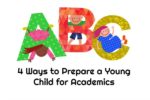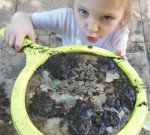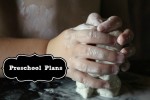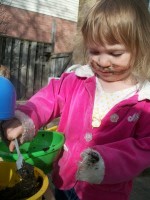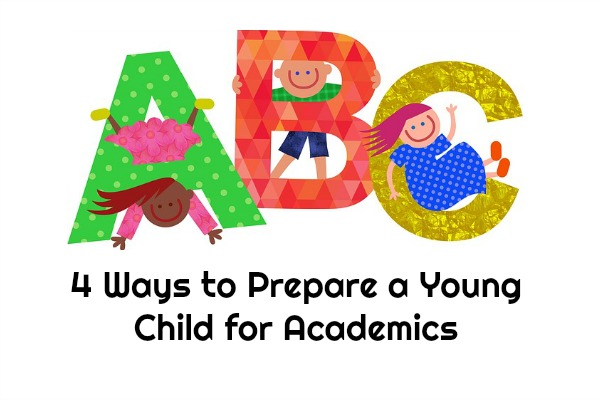
We all want our children to be successful in school. How do we help our young children learn what they need to learn so when school starts they will be all set?
I work full-time as a Speech-Language Pathologist with young children and their families. I go into the homes of young children and see parents eager to help their children learn. I see children learning to count, say their ABCs, and learn their colors and shapes. Is this the most effective way to prepare children for learning to read, do math, and succeed academically?
I don’t find it to be the best way to prepare a child for academics.
Concepts of counting, colors, shapes, and the alphabet are just that – concepts. Teaching these concepts are important, but they pale in importance to these 4 ways to prepare a young child for academics
1. Be screen-free
Let’s face it, kids are on phones. Kids are on phones and tablets a lot, even young toddlers! The American Family of Pediatrics recommends no screen time for children under 2 and only an hour a day for children from 2-5. And that hour a day is best done if you watch with your child and talk about what you are seeing.
Why?
Why is it important for kids to have screen-free days? It is important because kids need interactions with others to learn. They need interactions with the real world. I have seen many kids who are able to recite color names and letters of the alphabet that they learned from watching YouTube videos. At the same time, they struggle interacting with others and adapting to the dynamic skills involved in those interactions. Screens are predictable. If a child pushes a button, the same thing happens. Life and interacting with others is variable.
If you want to prepare your child for academic success, get rid of screens. This is also for the parent too. If the parent is often looking at his or her phone when the child is talking or interacting, it takes away from the interaction. Set aside screens and spend more time in face to face interactions.
2. Play
Play is so important. I find that play often develops along with cognitive skills and I have seen great improvements in cognitive skills by helping a child learn to play. Play is how a child learns. Pretend play is so crucial to language skills. Pretend play starts with a child pretending to put a toy to sleep or pretending to feed a toy. It should continue to develop into hours of pretending with others in sequences like going to the store, buying food, coming home, unpacking the food, preparing food, serving food, eating the food, spilling it on your shirt and cleaning it up, clearing the table, and cleaning up after the meal. This is probably one of the most important skills a child should have in preparation for academics.
Why?
Long sequences of pretend play promote memory skills, problem-solving skills, perspective taking skills, language skills, attention skills, social skills, symbolic thought, and flexibility. These skills are crucial for academic success. In a homeschool environment this can be done with siblings, peers, or with a parent
3. Problem solving
All children should be given problems to solve. As parents we often like to do things for our kids, but doing so can deprive a child of an opportunity to learn to do it for himself. In our busy lives we often (myself included) save time by doing things for our kids. Giving kids ample opportunities to solve problems will help prepare them for academic success.
Why?
It promotes creativity, flexibility, and the determination needed to solve new and demanding problems. If you think about it, these skills are important for life and not just academics. These events will happen in day to day life and they can also be facilitated by causing “problems” to happen like “losing” your child’s cup and helping him look everywhere until it is found.
4. Reading Aloud
Reading to your child is something most parents do. Interacting with books is important in the development of literacy skills. It can start by just looking at and talking about the pictures in a book as your child quickly turns pages. Over time it morphs into the child sitting and listening to a complete story. You can facilitate literacy skills by enjoying book time with your kid. If your child isn’t into books, try following his lead with the books or try using the books in different ways. I’ve been known to see a picture of a ball in a book and pretend to pick it up and throw it to a kid. I have also pretended to eat food items or bring a toy to a book and have that toy interact with the book.
Why?
Reading books to your young child exposes them to the printed word, new vocabulary, builds language skills, and creates a positive experience with books. Exposing children to books like Dr. Seuss will also help them build phonological awareness which is a necessary skill in learning to read.
While learning the alphabet and being able to count to ten are great skills, learning those concepts should not be the focus of the preschool years.
Spend time together.
Talk together.
Play together.
Encourage your child to solve his own problems.
Read together.
When it comes time to learn academic concepts, your child will have a stronger foundation of language skills, problem-solving skills, attention skills, pre-literacy skills, memory skills, and flexibility.
